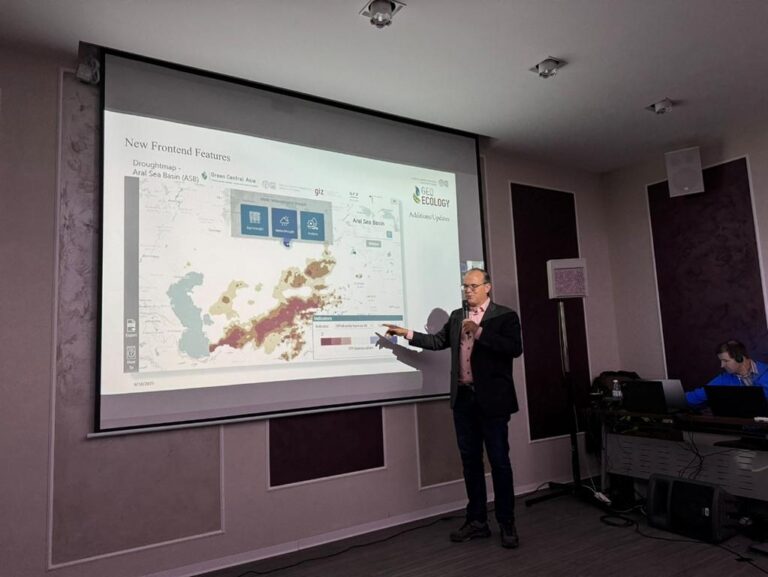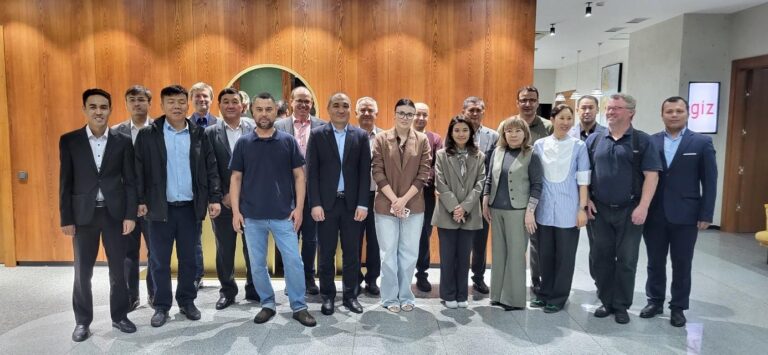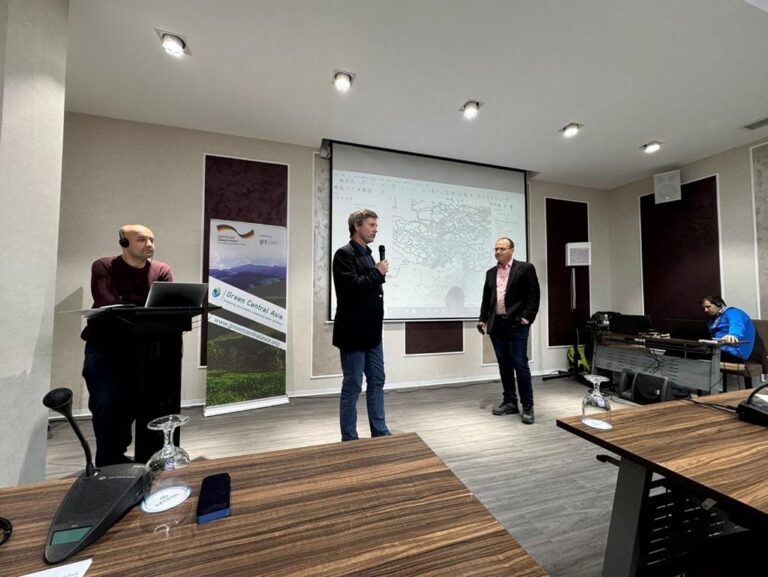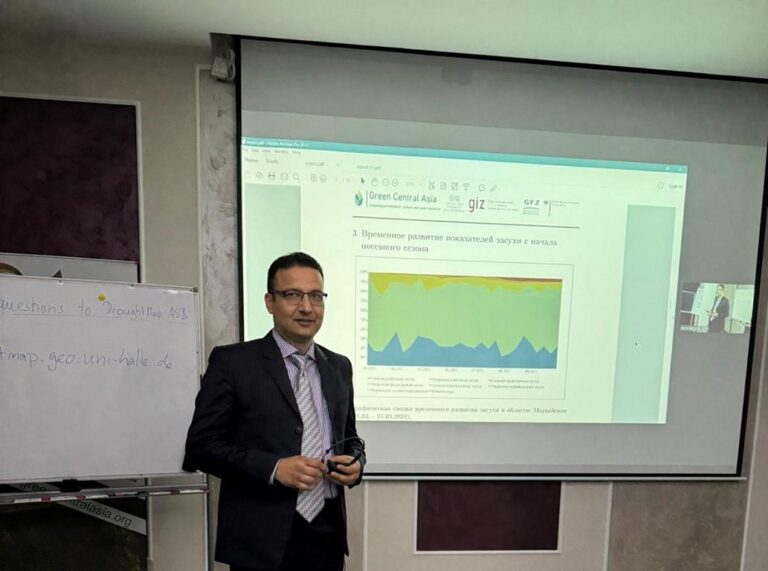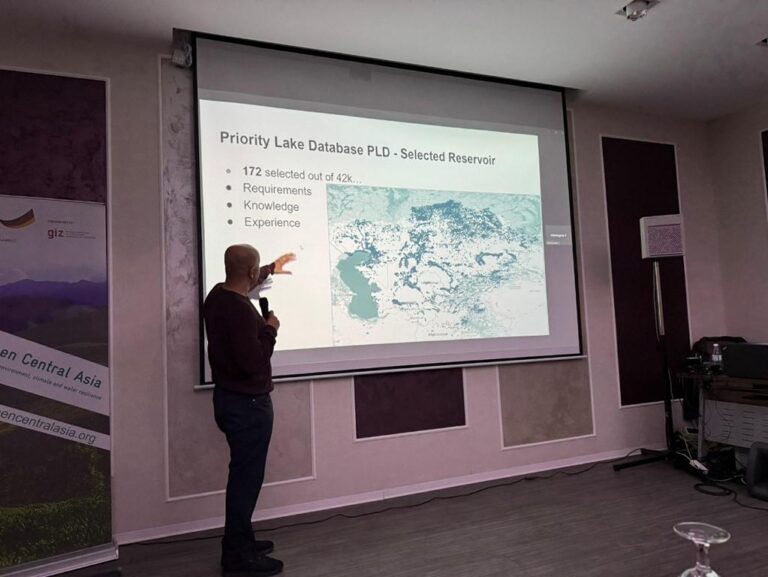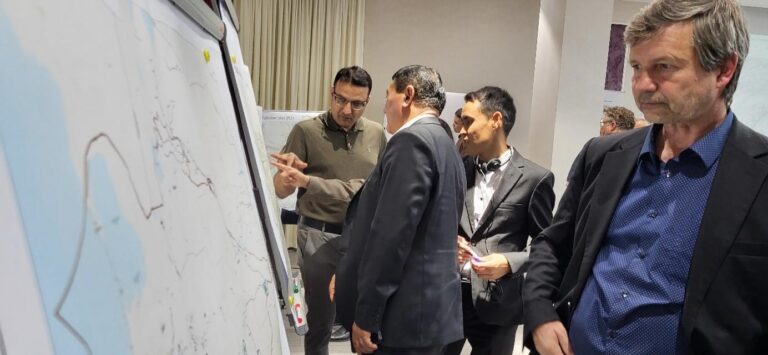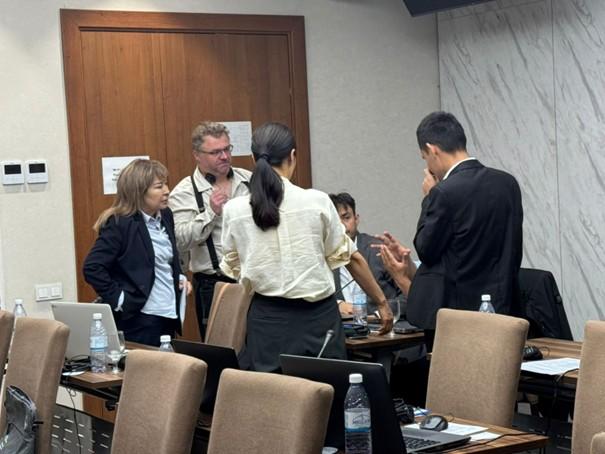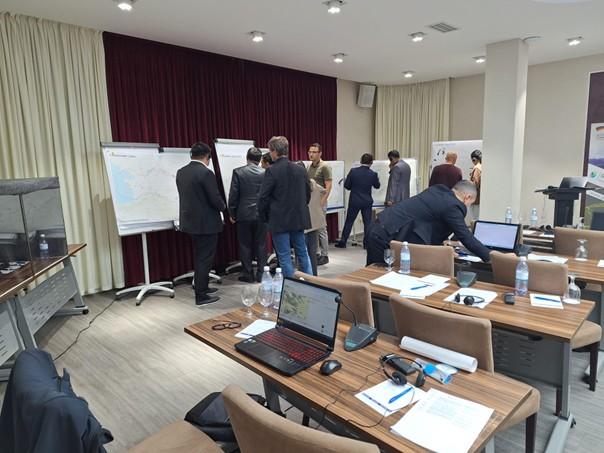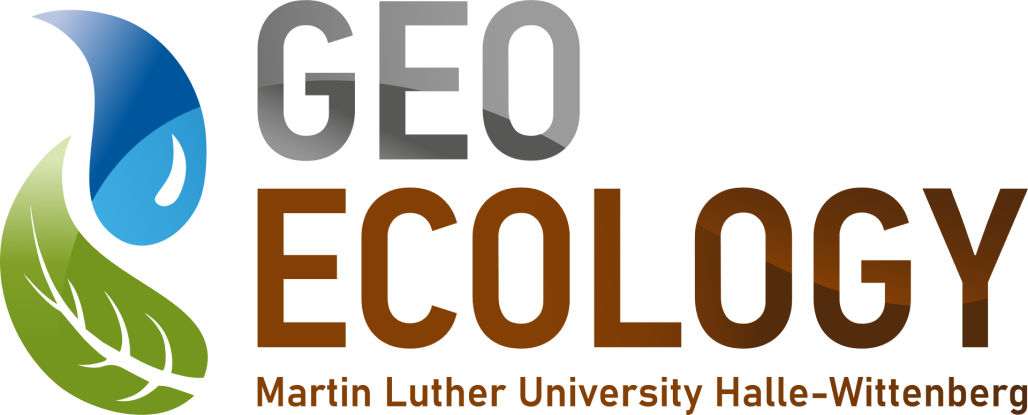Date: 17-18 September, 2025, Venue: Almaty, Kazakhstan
The Green Central Asia workshop on the new developments in the monitoring tool Droughtmap-ASB took place in Almaty, Kazakhstan, on 17–18 September 2025. It was implemented by the Department of Geoecology at Martin Luther University Halle-Wittenberg (MLU) together with the Helmholtz Center for Geosciences (GFZ) Potsdam, and organized by GIZ. The team from MLU Halle-Wittenberg included Prof. Dr. Christopher Conrad, Dr. Muhammad Usman, and Matthias Völkel, while Dr. Tilo Schöne and Najib Kakar represented GFZ Potsdam.
The workshop aimed to present the Droughtmap-ASB online tool for monitoring drought and water conditions in Central Asia and to introduce its new features, including meteorological drought indicators. A second objective was the integration of online information on water levels and volumes of numerous lakes and reservoirs, provided by GFZ through the Sensor Data Storage System (SDSS).
Partners from different ministries of water and agriculture, as well as from hydrometeorological services, took part in the training sessions and actively contributed to discussions and feedback rounds. All five Central Asian countries — Kazakhstan, Kyrgyzstan, Tajikistan, Turkmenistan, and Uzbekistan — were represented.
The participants recognized Droughtmap-ASB as a useful tool for the agricultural, water, and meteorological sectors. Partners from Kyrgyzstan and Tajikistan emphasized the importance of focusing more closely on drought in natural vegetation conditions, while representatives from Kazakhstan pointed out the need to consider steppe ecosystems, which dominate much of their country. They also highlighted the necessity of including additional transboundary river systems, such as the Ili and Talas catchments, since the tool currently concentrates mainly on the Aral Sea Basin. Across all countries, participants identified relevant lakes and reservoirs to be further processed in SDSS and integrated into Droughtmap-ASB.
The workshop highlighted the strong regional commitment to advancing drought monitoring, water management, and climate resilience through scientific cooperation and knowledge exchange.
